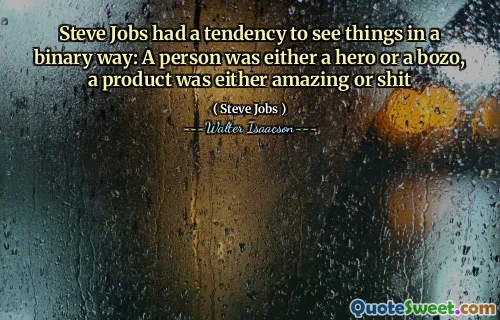In the middle of Lisa's eighth-grade year, her teachers called Jobs. There were serious problems, and it was probably best for her to move out of her mother's house. So Jobs went on a walk with Lisa, asked about the situation, and offered to let her move in with him. She was a mature girl, just turning fourteen, and she thought about it for two days. Then she said yes. She already knew which room she wanted: the one right next to her father's. When she was there once, with no one home, she had tested it out by lying down on the bare floor.
During Lisa's eighth-grade year, her teachers expressed concerns about her well-being, suggesting that she should leave her mother's home due to serious issues. In response, Jobs took the initiative to talk with Lisa during a walk, inquiring about her difficulties and ultimately proposing that she move in with him. At just fourteen years old, Lisa contemplated the offer for two days before agreeing, demonstrating her maturity and understanding of the situation.
Lisa already had a specific room in mind—one adjacent to her father’s. This room held significance for her, as she had previously envisioned herself there by lying on the bare floor when it was empty. This moment reflected her desire for a connection with Jobs, indicating her hope for a stable living environment and a deeper bond with her father.








